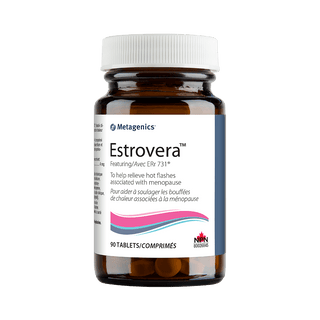Product Description:
Product description
In the Cell of the Brain
PS-100 is phosphatidylserine, a key component of cell membranes in the brain. The cell membrane is the seal around the cell that protects it and determines what can come in and out, and well as holding together enzymes and other important proteins. PS’s role in the cell membrane makes it absolutely essential for the proper structure and function of the brain.
Supports Brain Function
PS has primarily been found to support cognitive function. It does this by supporting the structure of brain cells, by blocking the age-related decline in nerve growth factor, and by helping to replenish levels of acetylcholine in the aging brain. Acetylcholine is an important neurotransmitter that is depleted in Alzheimer’s disease. Clinical trials with PS have found that it can reduce the symptoms of Alzheimer’s disease, as well as age-related memory loss and general dementia. Furthermore, it reduces the levels of the stress hormone cortisol, which makes it helpful for athletes and possibly for mood elevation.
Reduces Cognitive Decline
PS is essential for the proper functioning of the brain. As a supplement, it has been shown in clinical trials to benefit those who are suffering from cognitive decline.
Remember the Membrane
The primary biological role of PS in nature is to serve as a building block for cell membranes. Membranes are the complex outer layers of all cells. They are known as the ‘gatekeepers’ of the cells due to their role in determining what enters and exits the cell. PS is a fundamental component of each and every cell membrane. Membranes in general, and neuronal membranes in particular, are far more than just gatekeepers. They are in fact the working surfaces of the cell - and they depend on PS to perform that role.
Mechanisms of Action
Increases Acetylcholine
Animal studies indicate that PS replenishes acetylcholine in the aging brain, a critical indicator considering that acetylcholine levels are severely depleted in Alzheimer’s patients. PS appears to do this while simultaneously sparing choline for the further synthesis of acetylcholine. In order for these functions to be fully appreciated, it must be remembered that most drugs designed to treat Alzheimer’s patients use the same principle, namely by increasing acetylcholine levels. Such drugs perform this task by inhibiting the enzyme acetylcholinesterase that catalyzes the breakdown of acetylcholine. PS also stimulates the increased release of acetylcholine.
Preserves Dendritic Neuron Density
The dendritic neurons, located in the hippocampus of the brain and regarded as a substrate used to store and retrieve memories, tend to become more sparse and diluted with age - compromising cognitive capabilities as a result. Experiments with laboratory rats have revealed that treatment with PS prevents the age-related decline in dendritic neuron density.
Research Synopsis
Alzheimer’s Symptoms
Studies have demonstrated that supplemental PS possesses the ability to alleviate cognitive impairment, with particular emphasis on the symptoms of Alzheimer’s disease. There have been at least 70 published human studies with PS. In one such study, subjects with Alzheimer’s disease who took PS displayed ‘statistically significant’ improvements over the placebo group. Further Alzheimer’s studies with PS supplementation have achieved similar results.
Age-Associated Memory Impairment
Clinical trials have also shown phosphatidylserine to be effective in other forms of cognitive dysfunction, including ageassociated memory impairment and general dementia. In one study, participants who took PS displayed significant improvements over the placebo group in the memory categories of: learning names and faces, recalling names and faces, facial recognition, telephone number recall, misplaced objects recall, paragraph recall, and the ability to concentrate while reading, conversing, and performing tasks. Interestingly, the most notable improvements were among the subjects who were relatively more memory-impaired. Other studies have reported similar results.
Reducing Cortisol
Finally, there have also been several studies examining phosphatidylserine’s ability to significantly reduce levels of the hormone cortisol, released by the body in response to stress. This capability has been of particular interest to athletes, but more recent research has focused on the connection between lower cortisol levels and elevated mood. This connection, combined with yet further clinical findings - including those revealing improved EEG alpha-rhythms - serve to establish the overall impact of phoshatidylserine in the global enhancement of brain performance, particularly on the aging brain.
Amount: 1 Capsule |
100 mgPhosphatidylserine |
Non-medicinal ingredients: microcrystalline cellulose, silicon dioxide. Capsule: hypromellose. |
Best Sellers
Recently viewed products
Warning
We strive to provide accurate product information, but manufacturers may sometimes change their ingredient lists, which may result in differences between the information displayed on our website and the information on the product packaging. We recommend that you do not rely solely on the information presented on the site and always read labels, warnings, and directions before using or consuming a product. For additional information about a product, please contact the manufacturer. The information provided on this site is for reference purposes only and does not replace the advice of a licensed healthcare professional. You should not use this information to diagnose or treat a health problem or disease. Contact a healthcare professional immediately if you suspect you have a health problem.

















